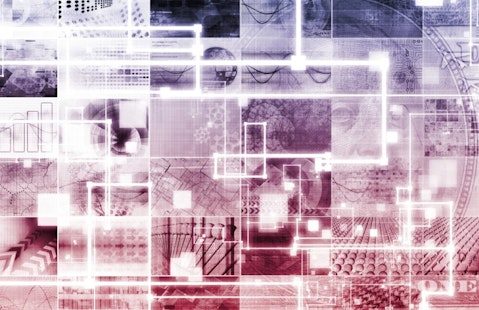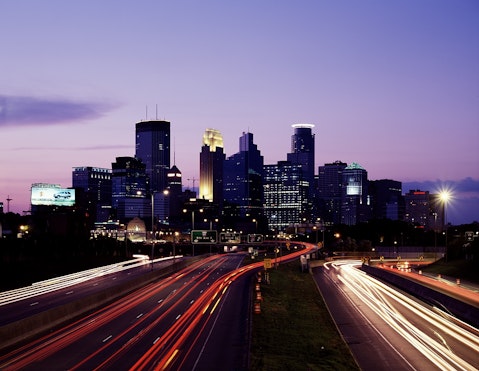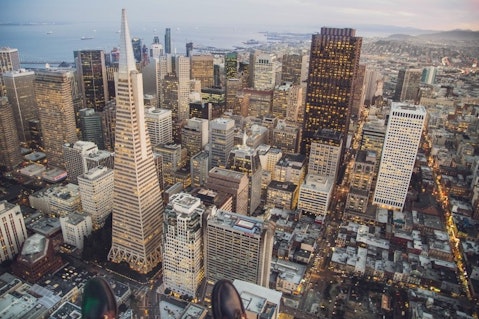Have you ever wondered which are the most technologically advanced and futuristic cities in America?
On October 21, 2015, the world celebrated “Back to the Future Day” — the date to which Marty McFly travels into the future from 1985. We’re still waiting on a proper hoverboard, though the Chinese-made personal scooters known as “hoverboards” are very popular and surprisingly affordable. (Look for a teen using one to uncouthly trip over a curb, coming soon to a city near you.) T-shirts and mugs wear the slogan “Where’s My Flying Car?” when we’re just beginning to make good electric and hybrid vehicles.
So the future doesn’t yet look exactly as we pictured it. This idea isn’t new; people have been overestimating their cultures’ future technologies for at least a hundred years, and reading classic science fiction from Jules Verne or H.G. Wells reminds us that our imaginations always have one foot in the real contemporary world. We’ve shared the 10 most technologically advanced cities in the world. What, then, does it mean to be one of the 15 most technologically advanced and futuristic cities in America?

kentoh/Shutterstock.com
This can’t be measured by any one parameter, so I’ve combined existing research into one master list: the Urban Land Institute, PC World, CNN, Government Technology, and City Data all listed futuristic cities with the best adoption of smart technology, connectivity, and more. Each city received one point for each list appearance. To break any ties, I added up to 1 point for the percentage of a city’s residents who have internet access using statistics compiled by Governing Magazine. Even so, there’s still one exact tie in the list!
The U.S. government enforces strong regulations on the companies that can or can’t apply for technology contracts, part of an effort designed to make the process fair and equal but which really hinders progress. For an entertaining take on this issue, check out an episode of podcast Reply All on the topic — and read more about the Estonian government’s embrace of technology that they mention in the show.
GE partnered with the World Economic Forum to research how technology is brought into cities, and some of the obstacles to progress. “Upgrading of infrastructure for the digital age is no easy task,” author Sarah Murray writes. “And the obstacles cities face should not be underestimated. Not only is it counterproductive to install technologies such as smart meters before ageing [sic] infrastructure—such as outdated substations—has been modernised, it is hard to turn off the power while upgrades are being installed.”
Without further ado, we bring you 15 most technologically advanced and futuristic cities in America!
15. Atlanta, GA — 2.792 points
Connectivity: 79.2%

14. Boston, MA — 2.801 points
Connectivity: 80.1%

13. Minneapolis, MN — 2.82 points
Connectivity: 82%
Minnesota is also the most literate state in the nation.

12. Charlotte, NC — 2.82 points
Connectivity: 82%

11. Austin, TX — 2.851 points
Connectivity: 85.1%

f11photo/Shutterstock.com
10. Portland, OR — 2.852 points
Connectivity: 85.2%

9. Raleigh, NC — 2.856 points
Connectivity: 85.6%

8. Kansas City, MO — 3.756 points
Connectivity: 75.6%
As the first city to receive Google Fiber — an internet network that offers a free basic connection and a reasonably priced blazing-fast one — Kansas City catapulted into the future almost overnight. The city wants to make sure all residents have internet access, since Google’s free service is only useful if you have the equipment to use it. Networking behemoth Cisco sponsored a streetcar line and other features to help foster a culture of tech innovation. With the cost of living that shines like a diamond in the rough among the 15 most technologically advanced and futuristic cities in America, Kansas City has a rare opportunity to leapfrog ahead.

7. Phoenix, AZ — 3.759 points
Connectivity: 75.9%

Anton Foltin/Shutterstock.com
6. New York, NY — 3.781 points
Connectivity: 78.1%
The greater New York City area has one of the most comprehensive public-transit systems in America and is one of only two Alpha++ Global Cities according to the Globalization and World Cities Research Network — the other is London. This ranking indicates that New York is plugged into and exerts a unique, outsize influence on the global economy.

Songquan Deng/Shutterstock.com
5. Seattle, WA — 3.878 points
Connectivity: 87.8%
Mayor Ed Murray discussed Seattle’s place as one of the 15 most technologically advanced and futuristic cities in America in May of 2015 during a Mayor’s Forum reported by Patrick J. Kiger. Seattle embraces new trends, like the sharing economy represented by Uber. Kiger reports a fact that fits right in with the perceived inefficacy of government in tech: “[Mayor] Murray said that cutting-edge entrepreneurs aren’t accustomed to working with government officials and seeking their help, so it’s necessary to be proactive. He recommended forging such relationships early, by reaching out to them while their enterprises are still in the incubator stage.”

dibrova/Shutterstock.com
4. Philadelphia, PA — 4.702 points
Connectivity: 70.2%

mandritoiu/Shutterstock.com
3. Los Angeles, CA — 4.783 points
Connectivity: 78.3%

Sarah Fields Photography/Shutterstock.com
2. Denver, CO — 4.808 points
Connectivity: 80.8%

1. Bay Area, CA — 5.101 points
Connectivity: 85.1%
San Francisco and Silicon Valley form a predictable winning combination here as the most technologically advanced and futuristic city in America. The Urban Land Institute reported in October that the next wave of tech-sector growth in the Bay Area will be in San Francisco itself, closer to where young professionals and their families want to live — which also means helping to ensure there is affordable housing in one of the most inflated real-estate markets in the nation. Technological growth in the Bay Area is driven twofold by the technology industry there. First, any concentration of tech creators and innovators will want to create and innovate in their own living spaces. Second, the competitive market for qualified programmers and engineers leads to local amenities that help to entice the brightest talent.






